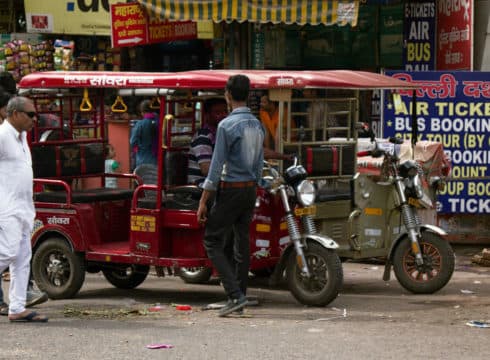SUN Mobility will offer its energy infrastructure platform
Uber’s driver partners will benefit because they can buy vehicles without the battery
In the coming months, this partnership will be piloted across select cities
Inc42 Daily Brief
Stay Ahead With Daily News & Analysis on India’s Tech & Startup Economy
In a bid to join in the electric mobility ambitions of the Indian government, Uber Technologies has partnered with Sun Mobility to deploy electric autos on its platform.
As part of the alliance, SUN Mobility will offer its energy infrastructure platform, which includes swappable smart batteries and quick interchange stations to select original equipment manufacturers (OEMs) for building electric autos. The availability of swappable lithium-ion batteries will reduce the overall cost of ownership of such eco-friendly vehicles as batteries constitute almost 40% of the overall cost of an electric vehicle.
The plan is that the fleet owners and Uber’s driver partners will benefit because they can buy vehicles without the battery to save money on initial acquisition costs. They will receive charged, swappable batteries as a service by SUN Mobility, thereby helping bring the overall cost of E-Autos in line with their internal combustion engine (ICE) counterpart.
In the coming months, this partnership will be piloted across select cities.
Chetan Maini, cofounder and vice chairman of SUN Mobility said, “Partnering with Uber, the leading global player in personal mobility, will help create a wide EV landscape at scale, that will transform the way people commute.”
Launched in April 2017 and led by Chetan Maini, Sun Mobility is working with STUs, fleet operators, shared mobility providers, and automotive OEMs across all platforms including 2/3 wheelers, cars and buses to challenge the status quo of EVs with an economical, scalable and smarter solution forward.
In a bid to ensure greener mobility, the Narendra Modi-led government had taken several steps to promote production and adoption of electric vehicles in India. NITI Aayog had recently proposed that only electric vehicles should be sold in India by 2030. For this, it called for full electric transition for three-wheelers by 2023 and two-wheelers with an engine capacity less than 150 CC by 2025.
In a statement to the Lok Sabha, Minister Of Road Transport And Highways, Nitin Gadkari said that India has 3.97 Lakh registered electric/battery operated vehicles as of July 9. The details showed that Uttar Pradesh has the highest registered e-vehicles i.e. 1.39 Lakh. It was followed by Delhi and Karnataka at 75.7K and 31.94K respectively.
Sun Mobility and Uber said that they will aim to address the gap between policy and implementation for catering to the country’s growing need for cleaner and more sustainable public transport solutions.
{{#name}}{{name}}{{/name}}{{^name}}-{{/name}}
{{#description}}{{description}}...{{/description}}{{^description}}-{{/description}}
Note: We at Inc42 take our ethics very seriously. More information about it can be found here.


